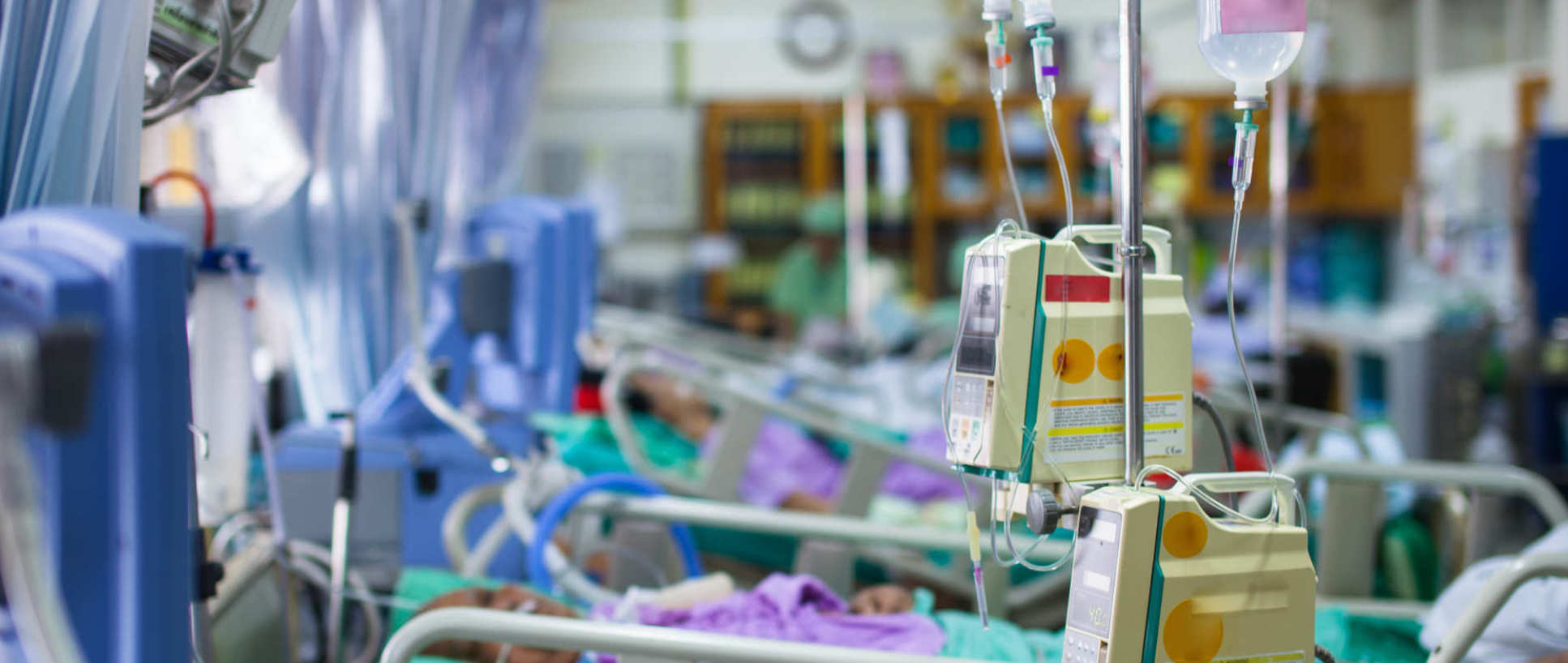BibTex format
@article{Gordon:2014:10.1136/bmjopen-2014-005866,
author = {Gordon, AC and Mason, AJ and Perkins, GD and Ashby, D and Brett, SJ},
doi = {10.1136/bmjopen-2014-005866},
journal = {BMJ Open},
title = {Protocol for a randomised controlled trial of VAsopressin versus Noradrenaline as Initial therapy in Septic sHock (VANISH)},
url = {http://dx.doi.org/10.1136/bmjopen-2014-005866},
volume = {4},
year = {2014}
}
RIS format (EndNote, RefMan)
TY - JOUR
AB - Introduction Vasopressin is an alternative vasopressor in the management of septic shock. It spares catecholamine use but whether it improves outcome remains uncertain. Current evidence suggests that it may be most effective if used early and possibly in conjunction with corticosteroids. This trial will compare vasopressin to noradrenaline as initial vasopressor in the management of adult septic shock and investigate whether there is an interaction of vasopressin with corticosteroids.Methods and analysis This is a multicentre, factorial (2×2), randomised, double-blind, placebo-controlled trial. 412 patients will be recruited from multiple UK intensive care units and randomised to receive vasopressin (0–0.06 U/min) or noradrenaline (0–12 µg/min) as a continuous intravenous infusion as initial vasopressor therapy. If maximum infusion rates of this first study drug are reached, the patient will be treated with either hydrocortisone (initially 50 mg intravenous bolus six-hourly) or placebo, before additional open-label catecholamine vasopressors are prescribed. The primary outcome of the trial will be the difference in renal failure-free days between treatment groups. Secondary outcomes include need for renal replacement therapy, survival rates, other organ failures and resource utilisation.Ethics and dissemination The trial protocol and information sheets have received a favourable opinion from the Oxford A Research Ethics Committee (12/SC/0014). There is an independent Data Monitoring and Ethics Committee and independent membership of the Trial Steering Committee including patient and public involvement. The trial results will be published in peer-reviewed journals and presented at national and international scientific meetings.Trial registration number: ISRCTN 20769191 and EudraCT 2011-005363-24.
AU - Gordon,AC
AU - Mason,AJ
AU - Perkins,GD
AU - Ashby,D
AU - Brett,SJ
DO - 10.1136/bmjopen-2014-005866
PY - 2014///
TI - Protocol for a randomised controlled trial of VAsopressin versus Noradrenaline as Initial therapy in Septic sHock (VANISH)
T2 - BMJ Open
UR - http://dx.doi.org/10.1136/bmjopen-2014-005866
UR - http://bmjopen.bmj.com/content/4/7/e005866.abstract
VL - 4
ER -
 Critical care involves the care of the sickest patients in the hospital. Critically ill patients have usually been through a significant insult to their body (such as trauma, infection, burn) and have developed organ failure and require life-support. Critical Care is the largest theme bringing together clinicians and scientists from diverse backgrounds and includes collaborative research from hospitals throughout north-west London. Investigations range from evaluating biological mechanisms of organ failure through to the development of innovative technologies which allow the short-term and long-term support and recovery of organs.
Critical care involves the care of the sickest patients in the hospital. Critically ill patients have usually been through a significant insult to their body (such as trauma, infection, burn) and have developed organ failure and require life-support. Critical Care is the largest theme bringing together clinicians and scientists from diverse backgrounds and includes collaborative research from hospitals throughout north-west London. Investigations range from evaluating biological mechanisms of organ failure through to the development of innovative technologies which allow the short-term and long-term support and recovery of organs.